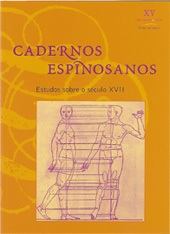Divine goodness and contingency on Leibniz
DOI:
https://doi.org/10.11606/issn.2447-9012.espinosa.2006.88976Abstract
In his correspondence with Arnauld, Leibniz shows us how the appeal to the divine will is fundamental to guarantee a space to contingency in a metaphysics that does not allow indetermination. Nevertheless, we must stil aks if divine goodness, one of the perfections included in the notion of God, does not render necessary what Leibniz had called contingent. This is why we will examine Leibniz´s notion of divine will, especially the distinction between antecedent and consequent will, intending to determine in which measure divine goodness (understood as the most perfect will) implies or not a universal ncessitarism.Downloads
Download data is not yet available.
Downloads
Published
2006-12-15
Issue
Section
Não definida
License
Autores que publicam nesta revista concordam com os seguintes termos:
- Autores mantém os direitos autorais e concedem à revista o direito de primeira publicação, com o trabalho simultaneamente licenciado sob a Licença Creative Commons Attribution que permite o compartilhamento do trabalho com reconhecimento da autoria e publicação inicial nesta revista.
- Autores têm autorização para assumir contratos adicionais separadamente, para distribuição não-exclusiva da versão do trabalho publicada nesta revista (ex.: publicar em repositório institucional ou como capítulo de livro), com reconhecimento de autoria e publicação inicial nesta revista.
Authors who publish in this journal agree to the following terms:
a. Authors retain copyright and grant the journal the right of first publication with the work simultaneously licensed under the Creative Commons Attribution License that allows to share the work with an acknowledgment of its authorship and initial publication in this journal.
b. Authors are authorized to take on additional contracts separately, to non-exclusive distribution of the article published in this journal (ex.: to publish in institutional repository or as part of a book), with an acknowledgment of its initial publication in this journal.
How to Cite
Oliva, L. C. (2006). Divine goodness and contingency on Leibniz. Cadernos Espinosanos, 15, 59-86. https://doi.org/10.11606/issn.2447-9012.espinosa.2006.88976


